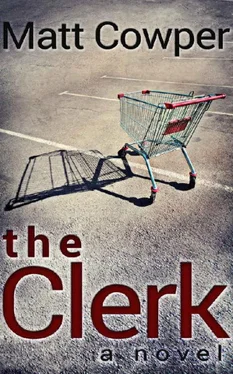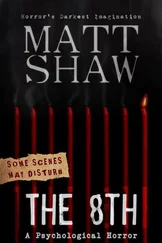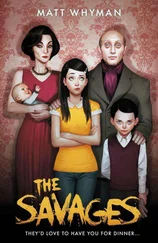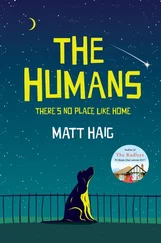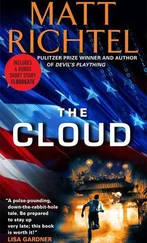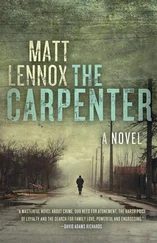There was a brand-new black Camaro parked two spaces away from him. The engine was running and he could hear a murmur of conversation, so he looked over as he unlocked his own Malibu. Under the glare of the boardwalk lights, he saw a pretty female face in the passenger seat, her hair straight and glossy, and a square-jawed, square-headed man on the driver’s side. He thought he saw a base sticker on the windshield. So he was a Marine, either from Camp Lejeune or Cherry Point, out with his darling to enjoy the twilight. They looked over at him briefly, then resumed their smiling chatter. It was a scene that invoked contradicting emotions: Thomas felt touched to see two smitten young people, but he expected that their marriage (and if they weren’t married, they would be, because Marines always got married) would end in disaster, since that’s how military marriages usually ended. Smiling happily at having avoided the marriage trap himself, Thomas got into his car and pulled away.
There was little traffic, and Oxendine’s Grocery, sitting there on the corner of Atlantic Beach’s big intersection, looked deserted. Thomas thought briefly about stopping in, but decided against it; it was his birthday, and his day off, after all.
Thomas drove towards Morehead City after only a quick stop at the intersection. Thank god they wouldn’t change the timing of the stoplights until summer was near. During the off-season, the lights changed quickly, so that no matter which direction you were going, a green light would soon blink on and let you get on your way. During summer, each light stayed green for minutes upon minutes, even after the bulk of the traffic was gone and there were only a few stragglers moving through the intersection. Thomas supposed they had studies showing how efficient the system was during the bustling summer months, but he’d never believe it was better, no matter how many numbers someone threw at him.
As he summited the bridge leading back to Morehead City, he looked down at Bogue Sound, black and still, at the glittering port to the east, and at the white glow to the west hovering above Morehead City’s strip mall/Big-Box/fast food area. It all looked pretty in the clear night, but if he had to pick the best sight, he would choose the waters of the sound. He would love to take a boat out there at night, and just run along slowly to the west, into the darkness, with the shore-lights shining on each side of him and the equally-bright and only slightly more mysterious stars twinkling overhead. He imagined it would feel much like his nighttime beach walks, where he seemed to be the only person in a darkened but still wondrous world.
He twisted around to look out at the black water as long as he could, not really worried about wrecking; there were no pedestrians and only one car behind him, far back at the crest of the bridge. Then he turned around and thought of home, and his soon-to-be-grilled steak.
It had been at least a month since he’d grilled anything. White-gray ash still sat in the ash catch, the mound bringing to mind tombs and crematory urns, and the grill bars were covered with burnt gunk. Thomas poured the ash into an old coffee can he used for a repository, sneezing as some of it got in his nose. He cleaned the bars with a wire brush, dumped a heap of charcoal into the rounded bottom of the grill, doused the black nuggets with far too much lighter fluid, then ignited them with a foot-long match. A fireball roared up, and the heat blasted against Thomas agreeably, sending the cold scurrying.
As the fire got going, Thomas looked over to the one second-story apartment next to him. Its tenant rarely used his landing. Pine straw matted the concrete floor. A plastic lawn chair lay toppled and covered in mold. Inside, thick curtains kept any light from escaping save for a sliver in the gap between curtain and carpet. Thomas stood there pondering and sipping his beer. He couldn’t exactly recall when he’d last seen his neighbor outside on the landing. Had it been two months ago, or three? He remembered a thin man leaning against the metal railing, smoking a cigarette. He had a thick beard and deep-set eyes. Mid-20s. Jeans with holes at the knees and a black t-shirt two sizes too big. It had been early evening. He’d greeted Thomas with a quick grin when Thomas emerged from his own apartment, and Thomas had smiled back. No one said anything, and in a few minutes the neighbor had ground his cigarette butt into the concrete and returned inside. Thomas didn’t regret the silence. In the ten years he’d lived here, he’d only met a few of his fellow tenants. Most people moved in, then moved out in a year when their lease was up. Where they came from or where they went, Thomas couldn’t say. There were several long-termers (people living on disability and/or social security, single moms living on alimony and child support), but they kept to themselves even more than the transients, and seemed astonished and a little frightened when someone tried to talk to them. So Thomas kept to himself as well, only interacting with the two or three people who reliably returned a greeting.
The charcoal had turned gray, and an orange light smoldered between the pieces. Thomas got his marinated ribeye from the refrigerator, plopped it on the grill, and sighed contentedly as it sizzled and flames shot up to lick the meat. After a few minutes, he flipped it over, then went back inside for another beer.
While he was inside, his phone buzzed out “Tolling Bell” from the kitchen counter, which meant his parents were calling. It was early for them; they usually waited until he’d just gotten into bed before calling. It was as if they had hidden cameras in his apartment, and knew exactly when he was about to tuck himself in.
“Hello?”
“Heyyyyy there, birthday boy!” It was his mother, her bright, energetic voice shooting an explosion of confetti into the room. “The big Four-Oh is here, isn’t it? Oh my, what a number! That means we’re getting older, too, if we have a forty-year-old son!”
“Yes, it does.” Thomas couldn’t help grinning. Jean Copeland’s irrepressible good-nature could drive a person mad if they had to deal with it in person, but over the phone it was bearable.
“How are you, son?” It was his father’s gruff voice. Frank Copeland, despite being sixty-five and his son being forty, still thought he had to treat said son as a hopelessly wayward teenager. He didn’t chit-chat; he imparted wisdom. He didn’t ask light-hearted fatherly questions; he insinuated. His “How are you, son?” wasn’t a simple greeting; it was as loaded as a cannon.
For years, Frank Copeland had been certain his son would shoot himself in the head with the Remington twelve-gauge Frank had erroneously let Thomas take when he moved out of the house all those years ago. He could not see how Thomas could avoid doing this. His son worked at a grocery store, was paid a low wage, had no steady woman in his life, and had few friends. That Thomas could be a well-functioning adult seemed impossible. Frank Copeland knew how society treated its dregs, and he knew about suicide.
Frank had grown up in a “decaying country manor” with five other siblings, all of them female. Frank was the last child Carol Copeland gave birth to; Wallace Copeland wanted a boy, and when his wife finally gave him one, he patted her tenderly on the shoulder as she lay sweating and dazed on the hospital bed, and said, “Well, we can stop with the hanky-panky now.”
For the first few years of Frank’s existence, life was easy. His father was the clerk of court, a job that paid decently, and more importantly, had a certain prestige. Wallace Copeland had a joke or kind word for everyone in the courthouse, be they judge or janitor. He indulged his children, especially his youngest daughter, Sarah, who was a mischievous little sprite. (Frank, as should be expected, had hated her.) He even bought thirty acres of farmland, though he was no farmer. He just liked the idea of owning a piece of good earth — and who knows, maybe his children would want to stay in Carteret County when they grew up. If they did, he’d give them land to build their own homes on.
Читать дальше
